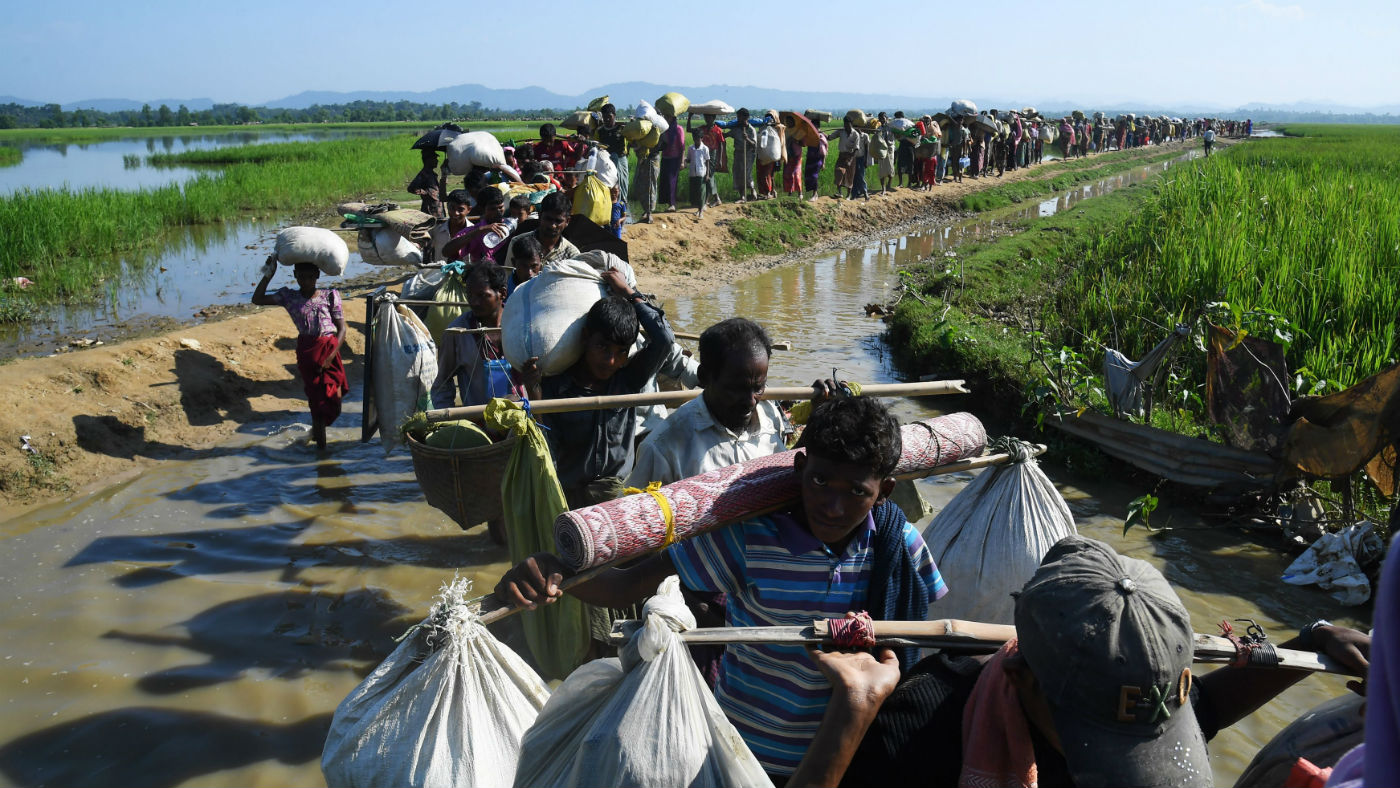Rohingyas set to return to Myanmar: but will they be safe?
Planned repatriation in doubt as refugees in Bangladesh go into hiding

A free daily email with the biggest news stories of the day – and the best features from TheWeek.com
You are now subscribed
Your newsletter sign-up was successful
Bangladesh has promised that it will not forcibly repatriate any Rohingya Muslims to Myanmar, amid fears over the safety of the persecuted minority.
“No one will be forced back to Myanmar,” Bangladesh’s Rohingya relief and repatriation commissioner, Abul Kalam, told Al Jazeera.
The Rohingya are a Muslim minority who have faced persecution at the hands of Myanmar’s security forces. Last year, the United Nations said attacks on Rohingya in the majority-Buddhist state were a “textbook example of ethnic cleansing”.
The Week
Escape your echo chamber. Get the facts behind the news, plus analysis from multiple perspectives.

Sign up for The Week's Free Newsletters
From our morning news briefing to a weekly Good News Newsletter, get the best of The Week delivered directly to your inbox.
From our morning news briefing to a weekly Good News Newsletter, get the best of The Week delivered directly to your inbox.
In total, more than 700,000 Rohingya have fled to neighbouring Bangladesh in search of safety, according to UN estimates.
Earlier this week, the Bangladesh government announced that an initial group of 2,260 Rohingya from 485 families were to be sent back to Myanmar, in line with a bilateral plan agreed by the two governments in October.
Most of the refugees are living in basic conditions in camps near the Bangladeshi border town of Cox’s Bazar.
The BBC reports that “on hearing the announcement, the people in the camps erupted in protest, shouting, ‘We don’t want to go back’, and holding up placards listing the things they wanted before they would agree to return”.
A free daily email with the biggest news stories of the day – and the best features from TheWeek.com
Although the plan was to begin repatriating the Rohingya refugees in groups of 150 each day, “by Wednesday night almost all had gone into hiding in other camps and in the nearby forest, amid fears they would be sent to Myanmar against their will”, says The Guardian.
Repatriation chief Kalam has acknowledged that most of the Rohingya are afraid to return across the border, but insisted: “At least some Rohingya, we believe, are willing to go back to Myanmar now. We are trying to reach them in different camps. We are ready to help them return to Myanmar.”
However, the United Nations High Commissioner for Refugees (UNHCR) said that the situation in the Southeast Asian country was “not yet conducive for voluntary return”, and vowed to play no role in the repatriation.
Officials in Dhaka are “worried about the prospect of the sprawling camps at Cox’s Bazar near the Myanmar border becoming permanent settlements”, reports the Financial Times.
Meanwhile, “the regional hegemon”, China, “opposes seeing the conflict internationalised - including the push to prosecute military and police officials responsible for the violence - and is backing the two countries’ repatriation plan”, says the newspaper.
For now, though, Bangladesh is attempting to quell fears of enforced repatriation by instructing NGOs that it maintains its commitment to voluntary returns and that all NGOs should continue their work as usual.
-
 The ‘ravenous’ demand for Cornish minerals
The ‘ravenous’ demand for Cornish mineralsUnder the Radar Growing need for critical minerals to power tech has intensified ‘appetite’ for lithium, which could be a ‘huge boon’ for local economy
-
 Why are election experts taking Trump’s midterm threats seriously?
Why are election experts taking Trump’s midterm threats seriously?IN THE SPOTLIGHT As the president muses about polling place deployments and a centralized electoral system aimed at one-party control, lawmakers are taking this administration at its word
-
 ‘Restaurateurs have become millionaires’
‘Restaurateurs have become millionaires’Instant Opinion Opinion, comment and editorials of the day
-
 Epstein files topple law CEO, roil UK government
Epstein files topple law CEO, roil UK governmentSpeed Read Peter Mandelson, Britain’s former ambassador to the US, is caught up in the scandal
-
 Iran and US prepare to meet after skirmishes
Iran and US prepare to meet after skirmishesSpeed Read The incident comes amid heightened tensions in the Middle East
-
 Israel retrieves final hostage’s body from Gaza
Israel retrieves final hostage’s body from GazaSpeed Read The 24-year-old police officer was killed during the initial Hamas attack
-
 China’s Xi targets top general in growing purge
China’s Xi targets top general in growing purgeSpeed Read Zhang Youxia is being investigated over ‘grave violations’ of the law
-
 Panama and Canada are negotiating over a crucial copper mine
Panama and Canada are negotiating over a crucial copper mineIn the Spotlight Panama is set to make a final decision on the mine this summer
-
 Why Greenland’s natural resources are nearly impossible to mine
Why Greenland’s natural resources are nearly impossible to mineThe Explainer The country’s natural landscape makes the task extremely difficult
-
 Iran cuts internet as protests escalate
Iran cuts internet as protests escalateSpeed Reada Government buildings across the country have been set on fire
-
 US nabs ‘shadow’ tanker claimed by Russia
US nabs ‘shadow’ tanker claimed by RussiaSpeed Read The ship was one of two vessels seized by the US military